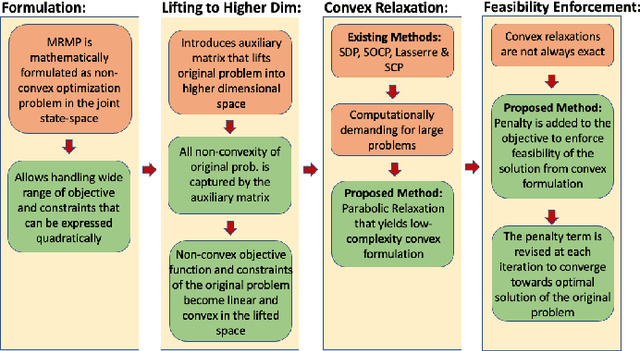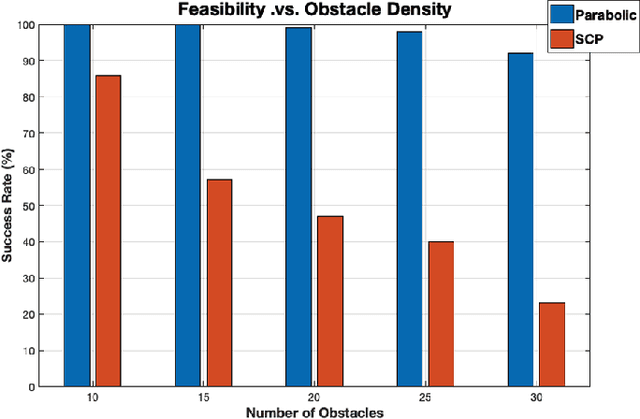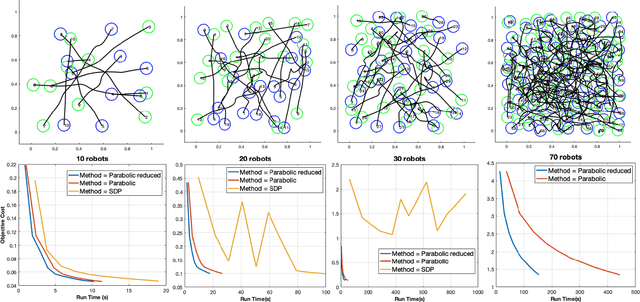Optimal Multi-Robot Motion Planning via Parabolic Relaxation
Paper and Code
Nov 28, 2021



Multi-robot systems offer enhanced capability over their monolithic counterparts, but they come at a cost of increased complexity in coordination. To reduce complexity and to make the problem tractable, multi-robot motion planning (MRMP) methods in the literature adopt de-coupled approaches that sacrifice either optimality or dynamic feasibility. In this paper, we present a convexification method, namely "parabolic relaxation", to generate optimal and dynamically feasible trajectories for MRMP in the coupled joint-space of all robots. We leverage upon the proposed relaxation to tackle the problem complexity and to attain computational tractability for planning over one hundred robots in extremely clustered environments. We take a multi-stage optimization approach that consists of i) mathematically formulating MRMP as a non-convex optimization, ii) lifting the problem into a higher dimensional space, iii) convexifying the problem through the proposed computationally efficient parabolic relaxation, and iv) penalizing with iterative search to ensure feasibility and recovery of feasible and near-optimal solutions to the original problem. Our numerical experiments demonstrate that the proposed approach is capable of generating optimal and dynamically feasible trajectories for challenging motion planning problems with higher success rate than the state-of-the-art, yet remain computationally tractable for over one hundred robots in a highly dense environment.
 Add to Chrome
Add to Chrome Add to Firefox
Add to Firefox Add to Edge
Add to Edge